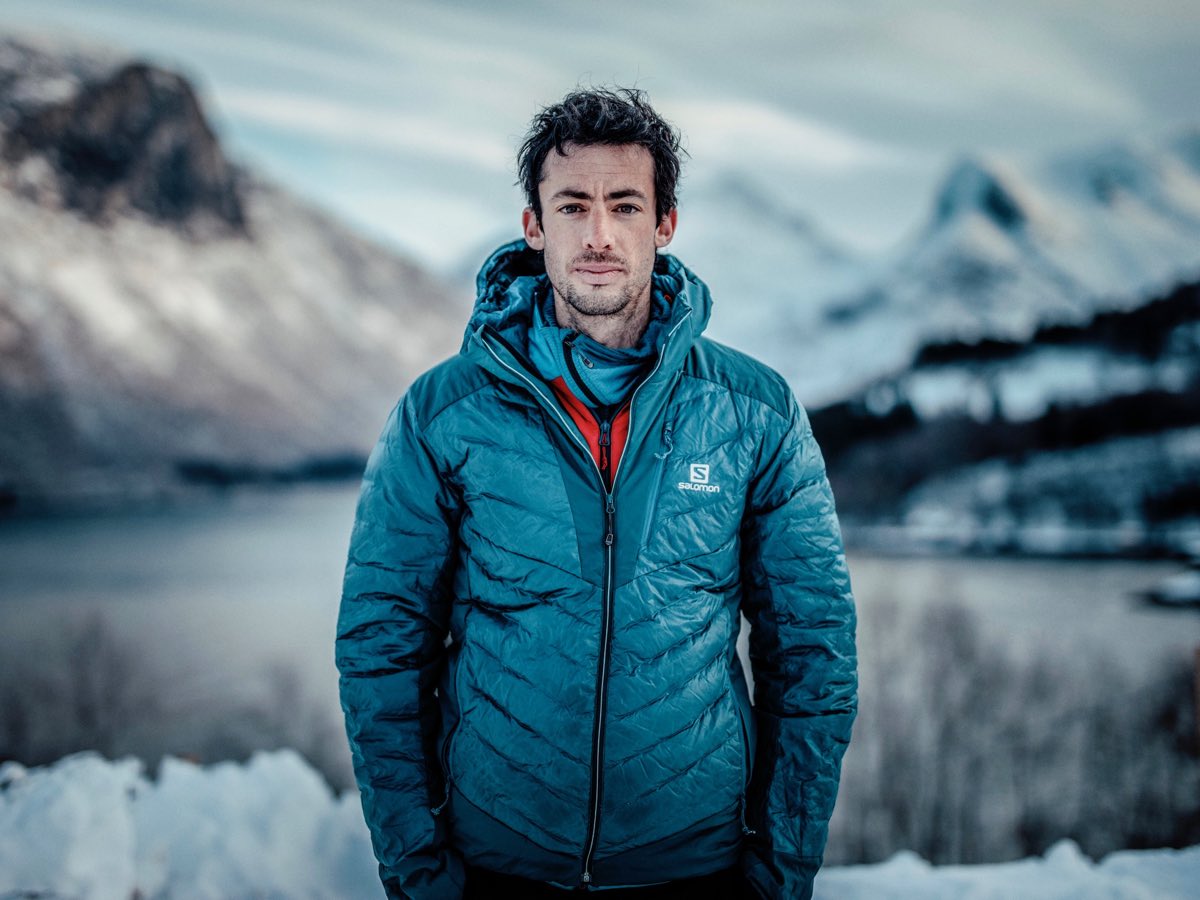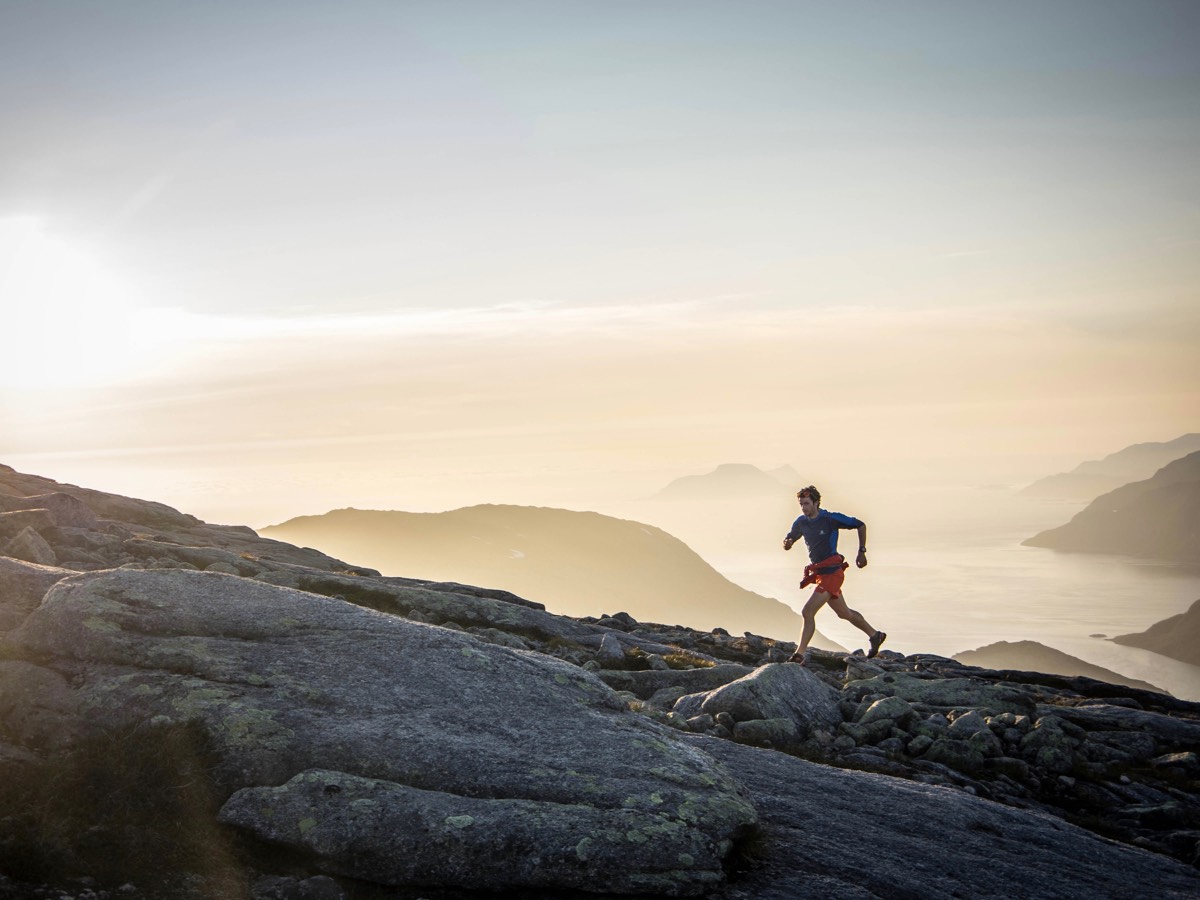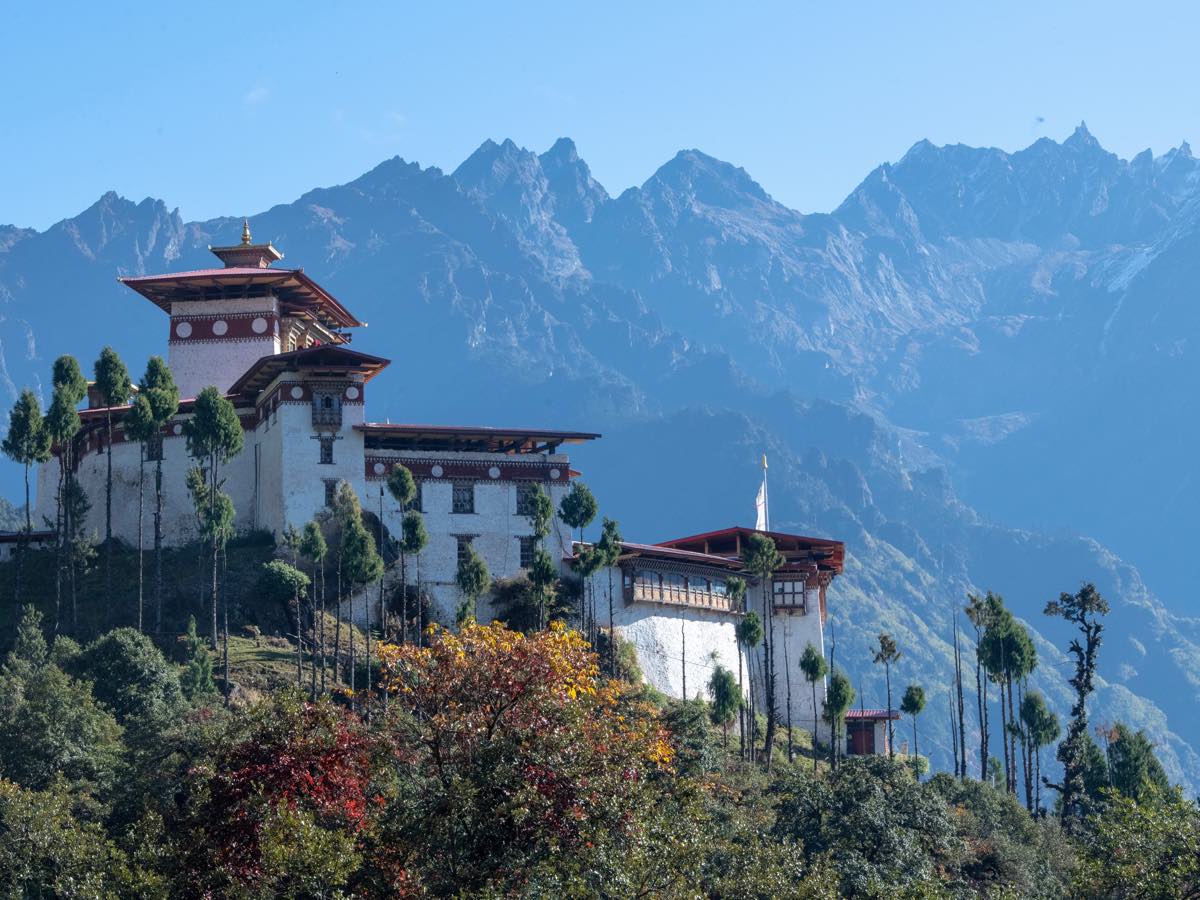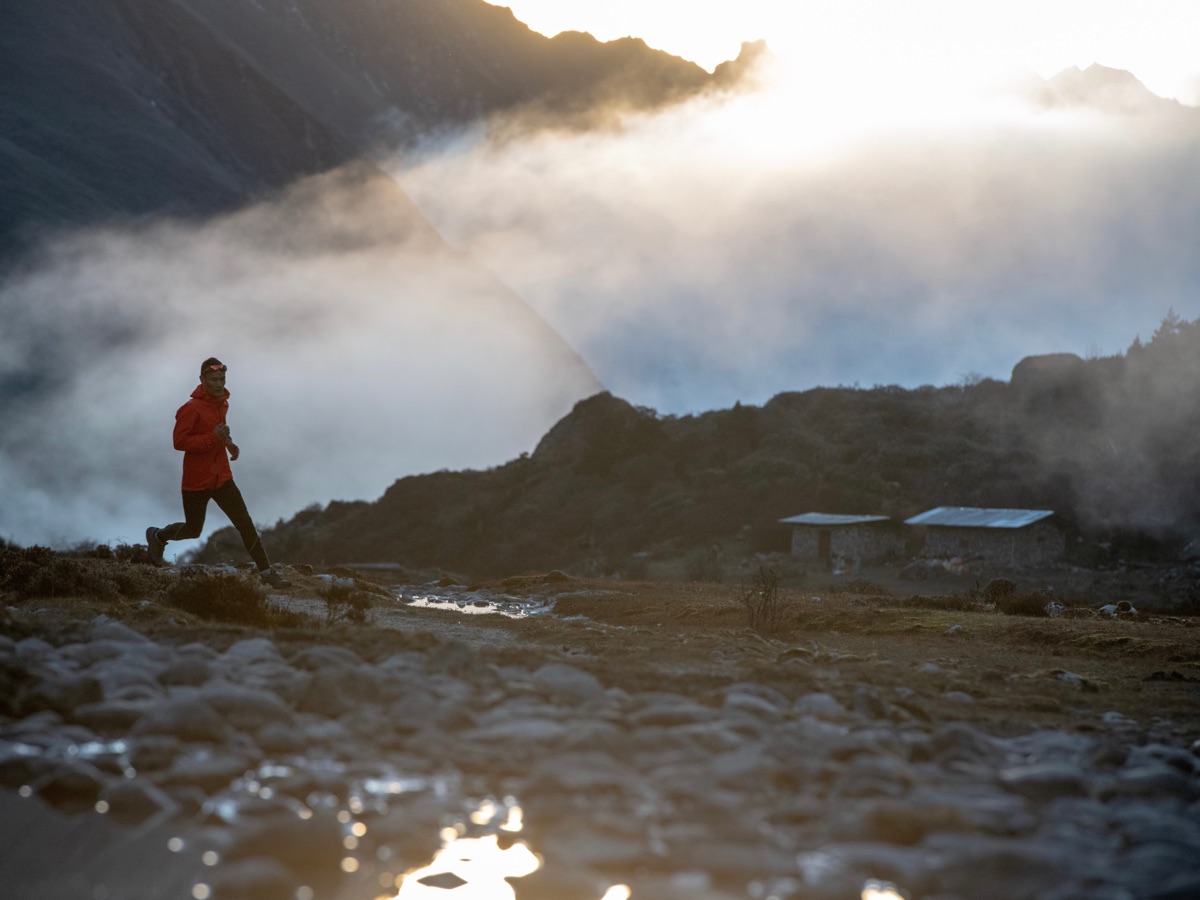A few weeks ago, I was running with a friend on the trails of Moab, Utah where we live. She was explaining her recent choice to carpool with friends up to ski in our local mountains rather than to run from her front door. Recreating via a 50-mile roundtrip drive in a 4×4 vehicle carries an elevated environmental impact–even when shared among a full car–and she was reflecting on it. “What I do probably isn’t worth a hill of beans, anyway,” she said.
I was shocked enough by her moment of resignation that I tripped twice on the rocks along the trail. These were the words of the friend who hasn’t owned a car for most of her life, has spent years living off the grid, declines jobs that she can’t reasonably ride her bike to, eats vegan, and rarely–we’re talking once or twice a year–leaves her geographic region. In disbelief, I managed to spit out, “You matter!”
I believe this statement to be true. My friend matters. We all matter. Everything, everyone is significant to something, someone.
‘Matter’ is a fascinating word. We learn that it comes from the Latin word ‘materia,’ meaning the ‘substance from which something is made’ or the ‘hard inner wood of a tree.’ Going even further back, we arrive to the Latin word ‘mater,’ or mother.
In basic physics, matter is any substance which has mass and occupies physical space. In other words, matter makes up our physical surroundings–and beyond.
Matter is also a verb used to convey a sense of importance or significance: “It matters that you arrive on time.”
Do you see the same symbolism as I do? To be matter or to matter, thus, is to occupy space, to act with significance, to be of our foundation or core, to be the stuff of which everything is made. All things are matter, all things matter.
The name of this monthly column is “The Collective We” and it functions under this precise principle, that what each of us is and does becomes a part of our greater group. Last year, the column’s theme was volunteerism. We explored the idea that each of us volunteering a small amount for our community and the natural landscapes through which we run adds up to a massive quantity of support.
This year, “The Collective We” focuses on the environment. Most specifically, we will explore in-progress environmental action in our trail running and ultrarunning community. We’ll meet the people, races, and companies who are leading us in our journey toward a better environmental path.
I’ll also spend time in this column taking a long, hard look at my environmental impact. I’ve already been doing this and, as a result, my footprint is shrinking. I’ll reduce it even more in 2020 and share with you that process.
It’s easy for me to become uneasy about the environment, my personal impact on it, and the collective impact our community creates. I know I’m not alone when I’m awake at night with my worry. We counter fear with knowledge and action, and so that’s why we’ll celebrate and learn from those who are already steps ahead of the rest of us in this environmental expedition. Perhaps a few of us will then be inspired to walk the same trail. To this end, this month, we explore the actions of and celebrate two athletes, Damian Hall and Kilian Jornet, and one race, the Snowman Race.
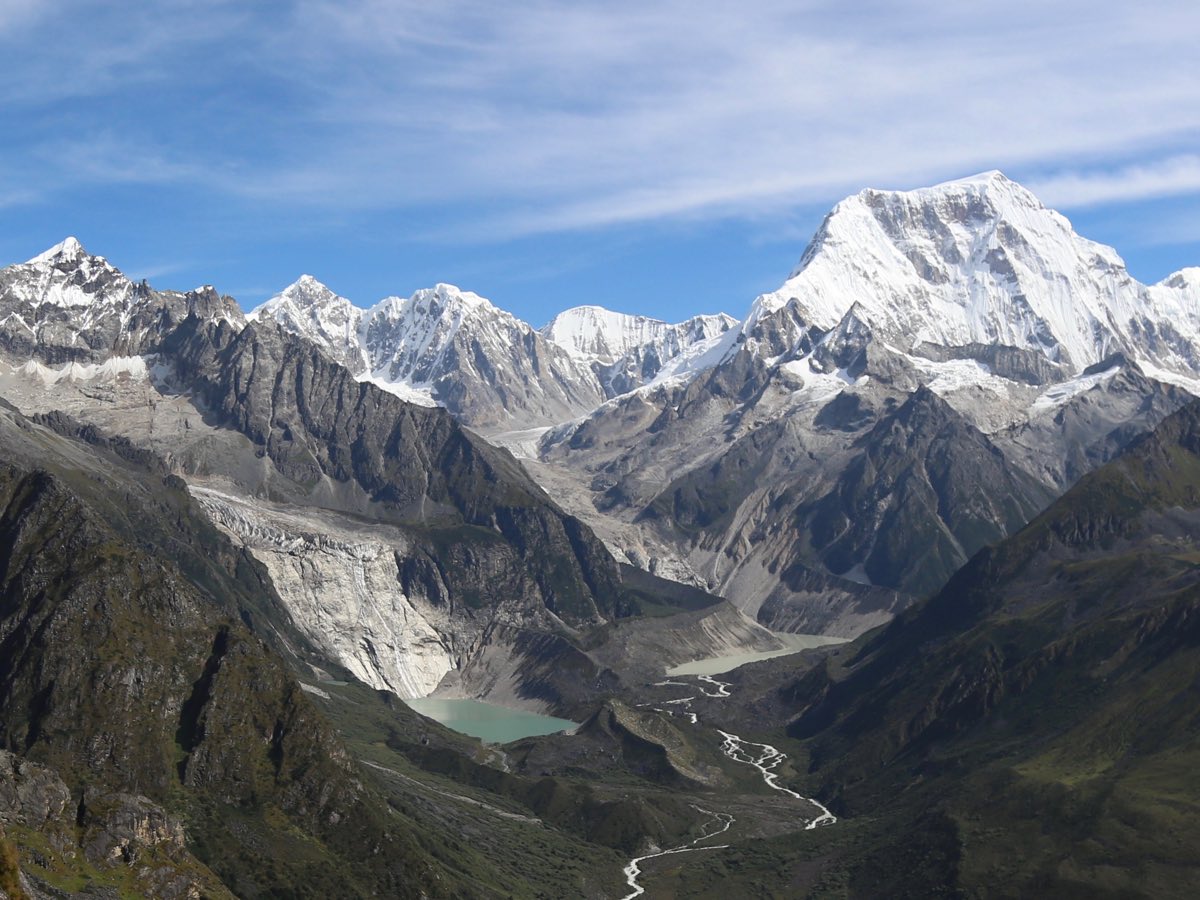
The Kingdom of Bhutan’s high mountains as seen from the Snowman Race course. Photo courtesy of the Snowman Race.
Damian Hall and Kilian Jornet: Big Athletes, Little Impact
Last month, Damian Hall and Kilian Jornet announced their 2020 racing schedules. Both plans were reduced in volume and geographic scope, and each explained that they wanted to make a smaller environmental impact with their athletics. Though Kilian and Damian are professional athletes who make a living through sport, they are choosing to place the planet in front of personal economy. I asked them a few questions to learn about the whys and hows of their choices.
Damian Hall
iRunFar: Why you are trying to make a smaller environmental footprint with your sport involvement in 2020?
Damian Hall: Thanks so much for the opportunity to talk about this. In a nutshell, I’m terrified. It’s 5:05 a.m. and I can’t sleep. I guess I have climate anxiety. I’ve got children and I’m haunted by the idea I may not be doing enough about passing on an okay planet to them and their children. It’d be more surprising, I guess, if a trail runner didn’t have environmental concerns? But I fell into climate-emergency apathy for a while there. Extinction Rebellion woke me up. We may only have 10 years to significantly reduce global greenhouse-gas emissions, possibly eight, before the seas reach a tipping point, feedback loops are triggered, and we’re f**ked.
I think the problem and the solutions are political rather than personal. We urgently need systemic changes, but political leaders aren’t leading on this. So it’s up to us to pressure them, institutions, and companies funding fossil fuels, those who are complicit with the big polluters. I think pressurizing key parties, through conventional channels or the civil-disobedience tactics of groups like Extinction Rebellion, is the most effective way forward.
As individuals we can set an example, too, and I decided to make my training and racing carbon negative this year, among other lifestyle changes. I did five roundtrip flights last year for races and my conscience won’t let me do that again. I have a longstanding commitment to race the Ultra-Trail Mt. Fuji in Japan, which I have mixed feelings about now. I offset the carbon a while ago, which isn’t perfect, I know. I have a family to support and I don’t feel I can completely stop flying. I’m going to race more domestically, use public transport more (including to get to UTMB), and offset my carbon emissions where I can’t see a better option.
I recently ran a winter Paddy Buckley Round and as an experiment I fueled without animal products (there were a lot of vegan brownies), without plastic waste, and used public transport to get there and home. It was fun to look into and not particularly difficult. Though predictably, I fell asleep on the way home and missed my stop.
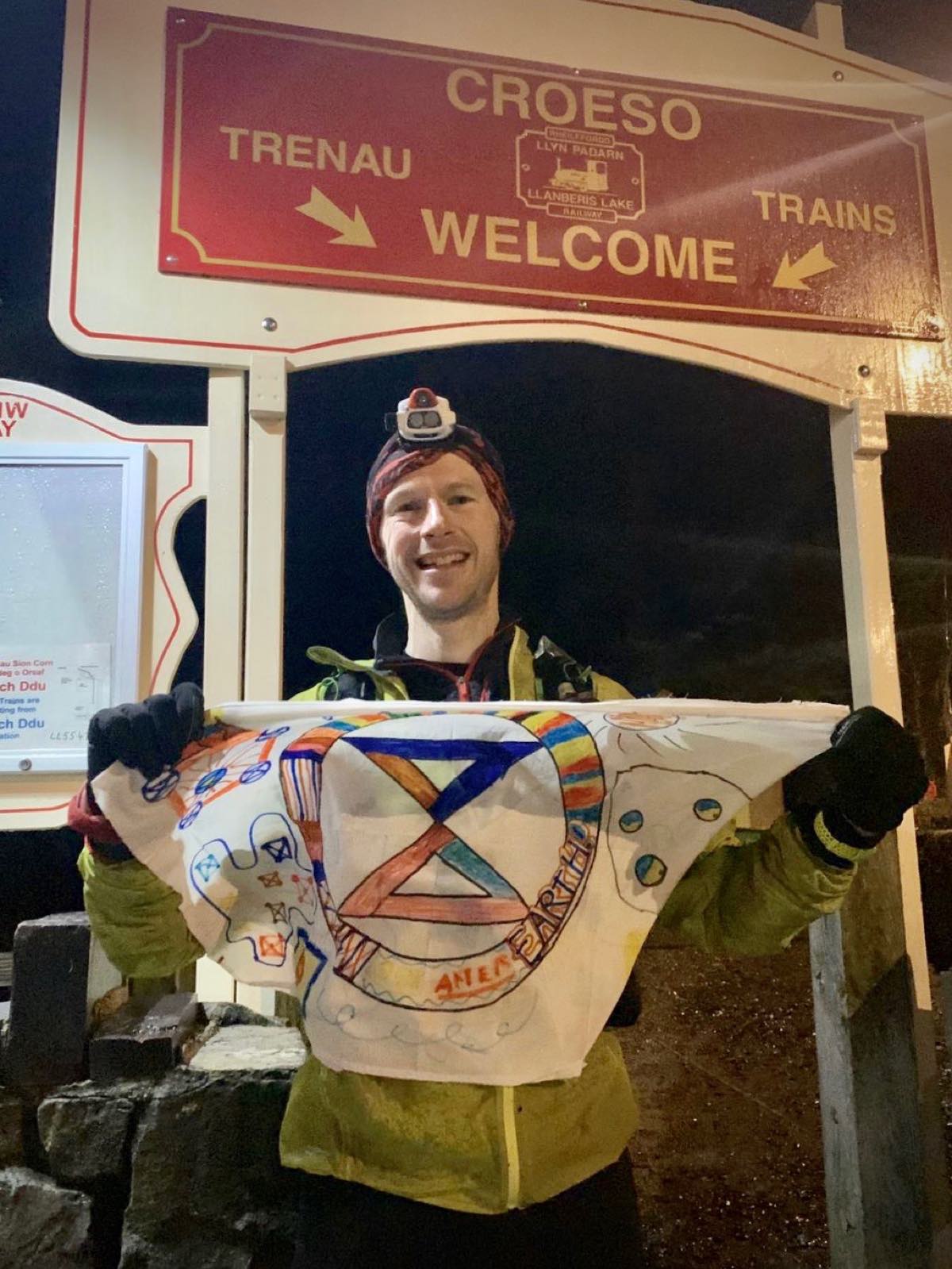
Damian Hall holding the Extinction Rebellion emblem made by his children after setting a winter speed record on the U.K.’s Paddy Buckley Round. He did so while trying to minimize the outing’s environmental impact. Photo courtesy of Damian Hall.
iRunFar: Do you have a tangible goal of reducing your carbon use by a certain amount?
Hall: I’ve teamed up with a carbon coach who’s calculated that in 2019 my family’s emissions (including all of my travel for running and so on) were nearly 16.5 tons of carbon dioxide equivalent. The U.K. [where I live] family average is estimated to be 45 tons per year (or 10 tons per adult). Our family-emissions budget for 2020 is 10.23 tons and I’ve offset 13 tons (at a cost of £270) to make us carbon negative.
I know lots of runners who do amazing things, such as Dan Lawson’s ReRun Clothing charity and others who have given up flying or have rewilding or carbon-sequestration schemes, for example. Our political leaders should be making this much easier for us, but they’ve tricked us into doing their work for them. I’ll continue to join Extinction Rebellion and other protest groups in their actions this year.
iRunFar: Does choosing to travel and race less have negative impacts on your career? How have your sponsors reacted? Have you had to make adjustments to your sponsorships?
Hall: Haha, was I meant to ask them? I’m doing what I think is right. If a company doesn’t like that, then I’m not keen to work with them anyway. I’m lucky to have two primary sponsors, inov-8 and Tomax Technology, who are generally very supportive but also conscientious. They are both serious about reducing their carbon footprint and being part of the circular economy, so I doubt there’s a problem. Of course, being sponsored by a clothing company is a little compromising, but almost everything about our predicament is. I’ll try to be more responsible on social media, too; promoting consumption less, for example.
iRunFar: Many outdoor athletes receive criticism for being imperfect environmentalists when they talk about taking environmental action. This sends some athletes into silence or causes them to stop taking action altogether. What are your thoughts on this?
Hall: I previously thought that I couldn’t speak out because that would make me a hypocrite. But we are trapped in a system based on fossil-fuel consumption and almost everything we do adds to the problem. It’s almost unavoidable. Anyone who speaks out is automatically a hypocrite. None of us are perfect or morally consistent. But we can try. I was afraid of being called a hypocrite, but I don’t care anymore. This is too important.
I’ve had some entertaining criticisms. Some people cover their own inaction with nitpicking and whataboutery. Here’s what haunts me: my grandchildren asking, “Granddad, what did you do about the ecological emergency when you had a chance?” I want my answer to be better than, “Er, I squabbled with a few people on Twitter.”
iRunFar: What hopes do you have for our community going forward when it comes to managing our environmental impact? From individual runners to races and from companies to our whole community, where might we concentrate our efforts?
Hall: I’m optimistic about the trail and ultrarunning community because it’s full of incredible people who care about the right things. I’ve been really impressed by races in the U.K. who’ve drastically cut down plastic usage and waste such as unnecessary t-shirts and medals, who’ve started planting trees, and so on. We as a community can really lead on this. Brands, too, should already have a clear idea of how they’re cutting their carbon footprint. I doubt it will be long before we as consumers want to know what a company’s carbon footprint is and we’ll likely do business with the most conscious ones. We could already be politely emailing races and clothing companies about this. It may be in the near future that some runners pick their races depending on how carbon conscious an event is. But also, like the inspirational Clare Gallagher urges, let’s keep talking about this.
iRunFar: How do you respond to someone who says, “I am interested in reducing the footprint I make, but I’m also afraid it doesn’t matter. What does one person matter?”
Hall: To an extent, I agree that we’re sweeping up leaves in a hurricane. If people feel an urge to do something, political changes will have far greater reach than personal ones. I’d suggest instead of analyzing your own carbon footprint, let’s put pressure on the big polluters and politicians. This is an election year in the U.S. which could be a huge turning point toward a more sustainable planet. Please use your votes wisely!
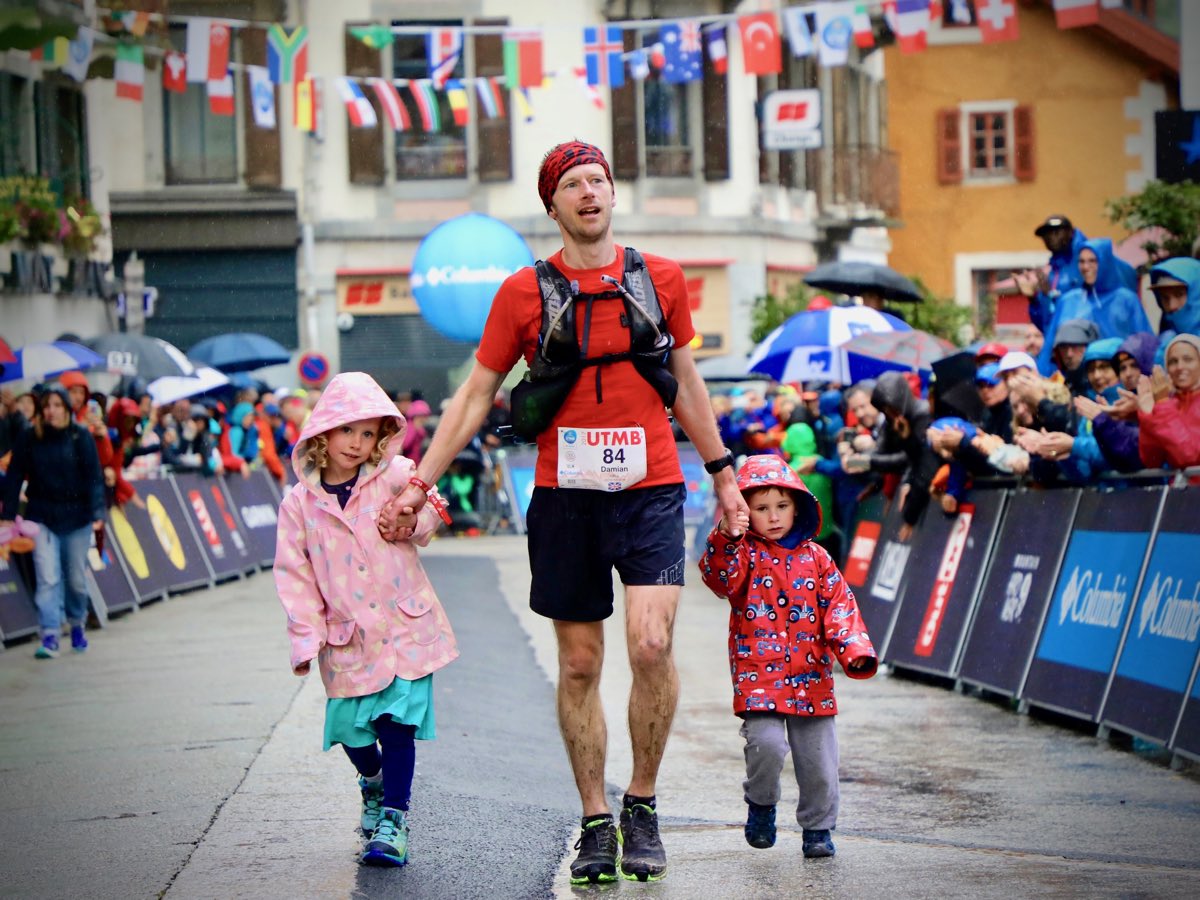
Damian Hall crossing the 2018 UTMB finish line with his kids to take fifth. Photo: iRunFar/Bryon Powell
Kilian Jornet
iRunFar: Why you are trying to make a smaller environmental footprint with your sport involvement in 2020?
Kilian Jornet: I have been traveling a lot, some years doing races on five continents. Somehow it seems normal as an elite athlete to travel that much, and not only for racing but also for [photo and video] shooting and meetings. I’m very grateful for these opportunities but during all those years I have also seen and realized that I was contributing to the destruction of this environment I love so much. To continue enjoying this playground and so that future generations can do the same, I believe I need to change some things in my lifestyle, and one of the biggest is my travel footprint.
iRunFar: Do you have a tangible goal of reducing your carbon use by a certain amount?
Jornet: I want to reduce the flights that I did last year. I also want to keep paying the carbon compensation for my travel and home footprint that I already have been doing for some years now.
iRunFar: Does choosing to travel and race less have negative impacts on your career? How have your sponsors reacted? Have you had to make adjustments to your sponsorships?
Jornet: It does for sure have a negative economic impact on me, as I won’t be able to attend that many conferences or talks. However, I am happy to make this choice. All my partners fully agree with my decision. In fact, all of them are also working on an ecological transition so it makes sense that us athletes do so. Mostly, it implies planning better our trips and trying to be more efficient such as more video calls and organizing well our travel to do several things on one trip. I will also choose the projects and races that I am fully committed to and that motivate me.
iRunFar: How do you explain your sponsorship with Volvic, a company that uses single-use plastics and lots of resources to ship water far and wide?
Jornet: When I started talking with them about a possible collaboration, I wasn’t convinced at first because of the reasons you mention. However, I learned more about the company and discovered that the involvement of both Volvic and the Danone group into a serious ecological transition is huge. This made me start the current collaboration.
What is interesting is the commitment of the group and especially its CEO to change completely the way of producing/transporting. Today they’re protecting water sources, supporting local farmers in the transition from traditional to bio-agriculture, using a communal methanizer to convert agriculture waste to energy, and their plastic is recyclable and every year uses a bigger percentage of recycled materials. Moreover, they are very committed to finding a better way to ‘pack.’
I believe that big groups need to embrace change to make this real in big scale. They are the ones who provide to a big part of the society with low income. I believe if they want to make a change and I can be there somehow to push a bit more, that can only be positive.
iRunFar: What hopes do you have for our community going forward when it comes to managing our environmental impact? From individual runners to races and from companies to our whole community, where might we concentrate our efforts?
Jornet: I think we need change from the whole community. Let’s start with race organizers who need to find cleaner transport solutions or avoid cars to follow the race and to use recyclable or biodegradable materials in everything they produce (aid stations, bib numbers, and more). This also means we as runners need to check the gear we buy. We should ask ourselves, do we really need it? We can also think about what we eat and how to travel more ecologically responsible to a race. And it also has to come from brands that support this sport, from producing better products to giving full thought on the way circuits are structured.
I think it’s a full new vision to our sport: to be aware of the problem and also look at it in a positive way, encouraging our community where we can have an influence. This won’t happen in one day, so we need to take small steps.
iRunFar: How do you respond to someone who says, “I am interested in reducing the footprint I make, but I’m also afraid it doesn’t matter. What does one person matter?”
Jornet: All actions matter, in a different scale for sure, but are important. If everybody thinks that their little action doesn’t make a difference, then it becomes a big [negative] impact. However, if we do small actions–recycling, traveling more efficiently, buying organic, becoming vegetarian, you name it–and we can influence some people in our community, and their actions influence us too, in a short time we can have some [positive] impact. Then, voting and advocating to politicians is basic. They can make laws to fasten this process, and so it is our vote that counts.
Also, we’re the ones who can make a choice on what we buy. (We live in rich countries and we don’t need to worry much about having food and water.) Our choices can influence companies to change and that will affect not only us but also the majority of the population who unfortunately have survival priorities that come before thinking about sustainability. We have that responsibility, too, in our choices.
The Snowman Race: Racing to Carbon Neutral
The Kingdom of Bhutan in the Himalayas is the only carbon-negative nation on earth. A carbon-negative nation, I find it moving to sit with that concept for a moment.
Bhutan is a small country–a bit bigger than the U.S. state of Maryland and a little smaller than Switzerland in western Europe–and an agrarian-dominant society–like its geographic neighbor Nepal or perhaps Morocco in northern Africa. It’s also tiny economically, sitting somewhere around the 160th country in terms of gross domestic product, in the relative vicinity of Belize and the Central African Republic (1).
But still, this is not a carbon-negative household or perhaps even a whole company; it is a nation. This fact has come with significant effort, time, and policy at the government level. It is the stuff of environmental-policy graduate-school classes–at least mine many years ago.
Let me offer a few more data points. As of 2015, Bhutan’s emissions were 2.4 million tons of carbon dioxide per year (2). That puts Bhutan, again, right about 150th to 160th in the world. Over a decade ago, Bhutan pledged carbon neutrality and soon reached it (3). By 2015, it was carbon negative (2). It achieves carbon negativity through carbon sequestration in its forests, which cover a smidge more than 70% of the country’s land area, and hydroelectric power, which powers most of Bhutan and is produced in such excess that it’s sold to neighboring countries. And the country’s infrastructure is set up to offset much more than its projected future impacts.
Bhutan is organizing a 25-person race called the Snowman Race. It’ll take place just once, in October of 2020, over five days and 300 kilometers. Runners will travel through the country’s remote northwest region, where few people live and fewer visit. The area is sometimes referred to as the Third Pole, a 10-country geographic region holding more snow and ice than anywhere on earth besides the North and South Poles (4). Way out there, Bhutan says, despite the nation’s own aggressive and progressive environmental policies, one can see the effects of global climate change. Bhutan wants a few people to go back there and see it for themselves–to feel deep in their bones the global environmental crisis’s presence in such a remote place–and to return to the rest of the world to share what they saw.
The race will also be part of a greater climate summit in Bhutan, the World Climate Action Summit, where global corporate leaders will gather to both celebrate progress made against the climate crisis and commit to a more environmentally progressive future.
To runners, corporations, and governments, Bhutan says, join us in the global race to carbon neutral.
Forward Thoughts
Twenty years ago, a small Canadian band called The Be Good Tanyas wrote a song with a whimsical melody and a lyric which tells us that, “The littlest birds sing the prettiest songs.” In the time since then, “The Littlest Birds” has become something of a personal anthem, my lifetime reminder to pay attention to the details and make space for the quietest voices to speak. Life has shown me the universal truth inside this lyric: the little birds are often who we need to hear the most.
So, to the tiny country of Bhutan asking the whole world to join them in the race to carbon neutral, I am ready to run. I mean that literally and figuratively, and I’m so pleased to say that iRunFar and I will be at the Snowman Race, to document Bhutan’s efforts in carbon negativity and climate change’s effects on the high Himalayas, and to see what we call can learn from this. To Kilian Jornet and Damian Hall and your athletic goal to run with lesser impact, your choices matter. They matter so much that I commit to your commitment; if your lives can be carbon negative, then so should mine. To my Moab trail running friend and her tiny-footprint avocation, you matter. You inspire many, including me, to emulate your lifestyle. This is the matter which composes our trail running and ultrarunning community. They matter, we matter, you matter.
Call for Comments
- What environmental topics would you like to see in “The Collective We” column this year?
- Are you working on reducing your personal environmental footprint? If so, can you share a little about the process?
- Where else in the trail running and ultrarunning community would you like to see action taken to reduce our impact and protect the natural places through which we run?
References
- https://en.wikipedia.org/wiki/List_of_countries_by_GDP_(nominal)
- https://sustainabledevelopment.un.org/content/documents/19341bhutan.pdf
- https://www4.unfccc.int/sites/submissions/INDC/Published%20Documents/Bhutan/1/Bhutan-INDC-20150930.pdf
- https://www.worldwildlife.org/stories/the-earth-has-a-third-pole-and-millions-of-people-use-its-water
